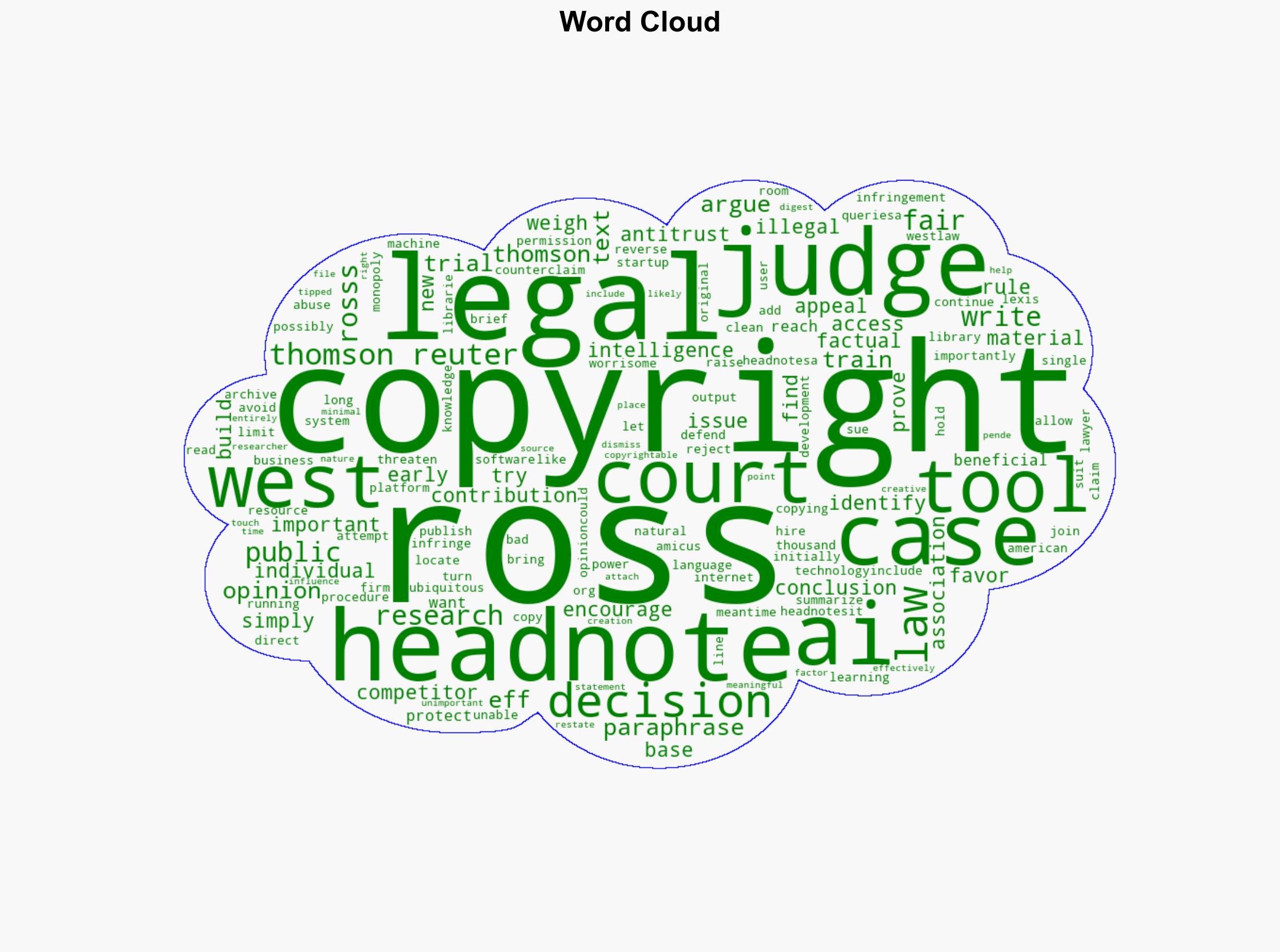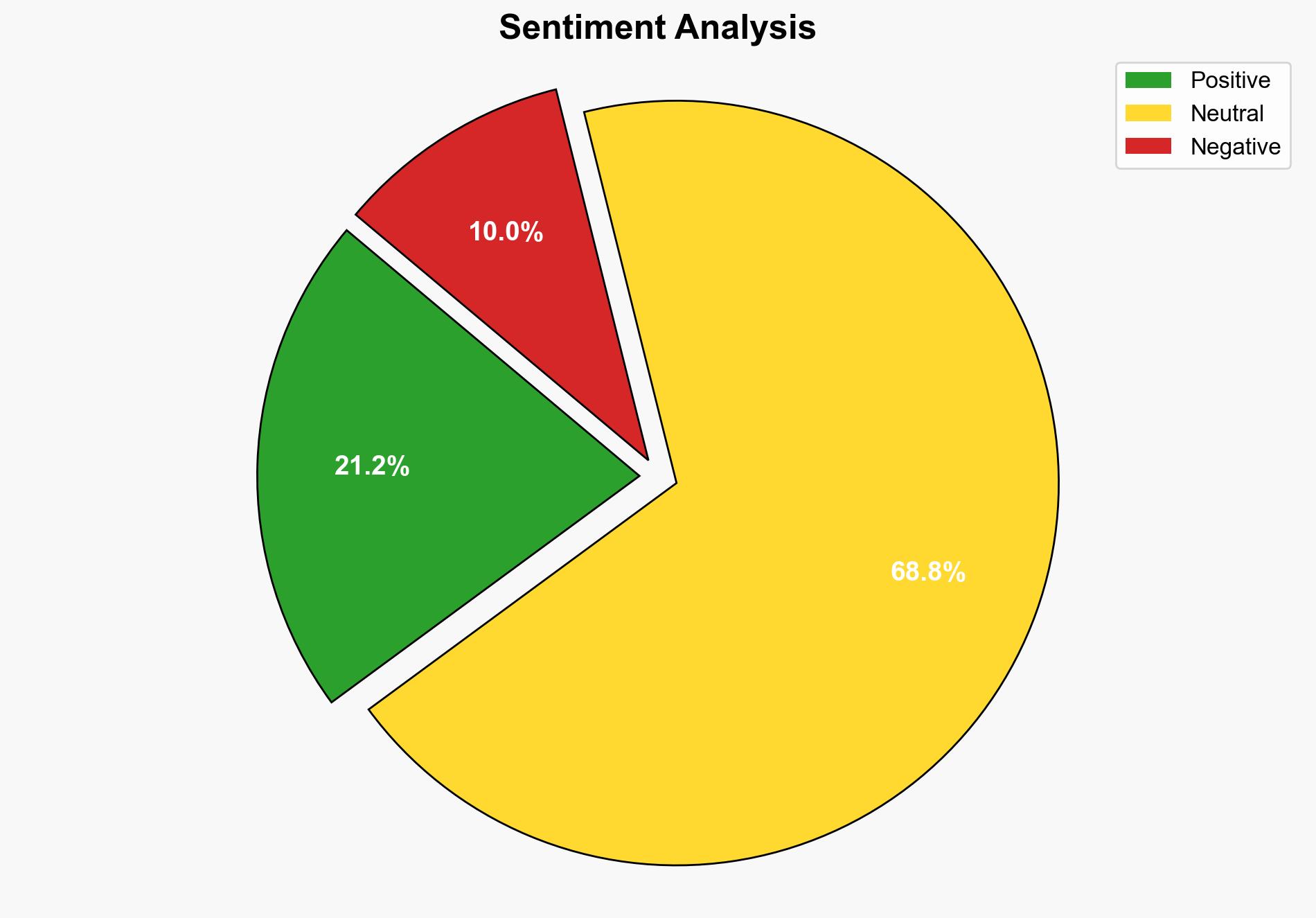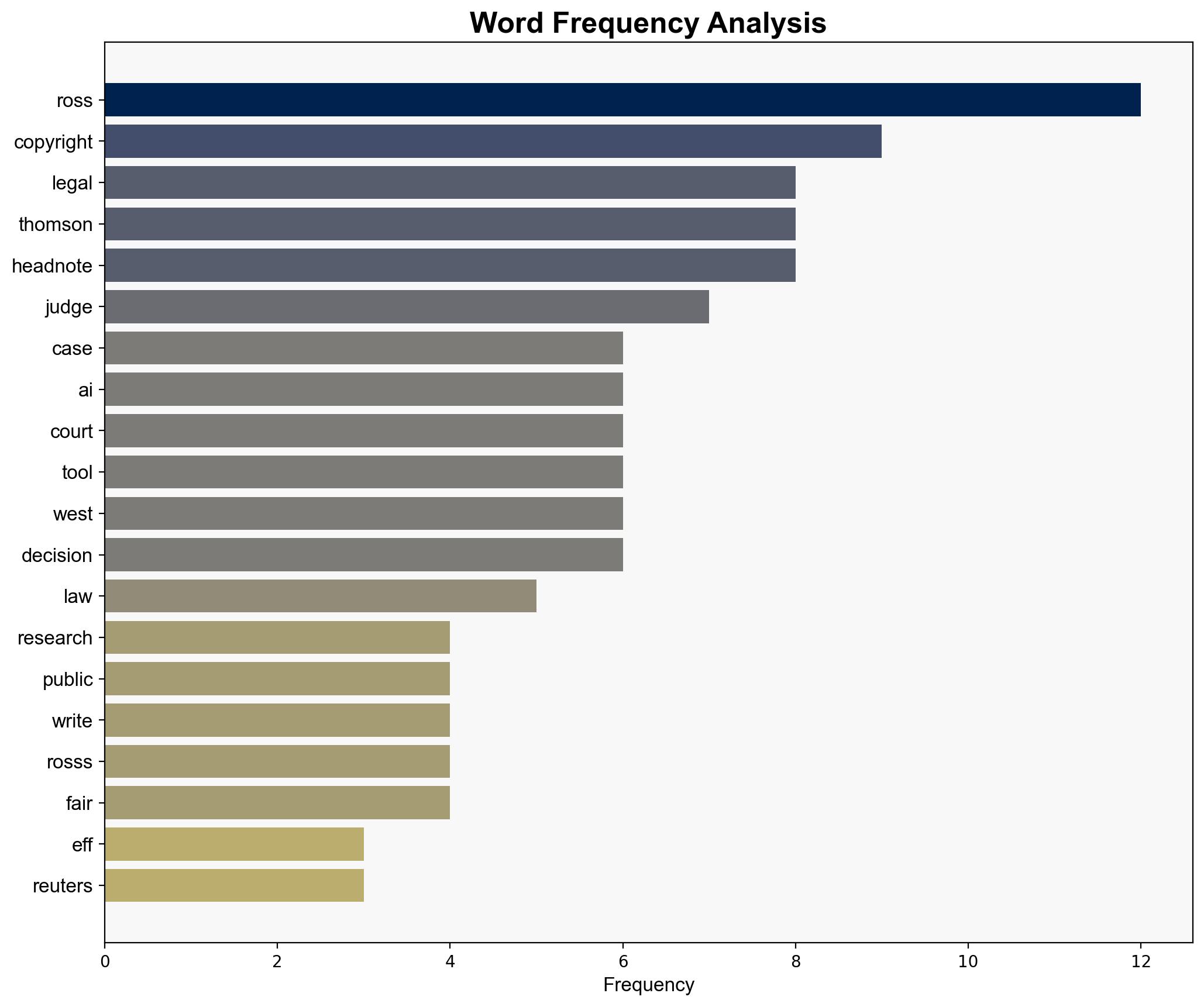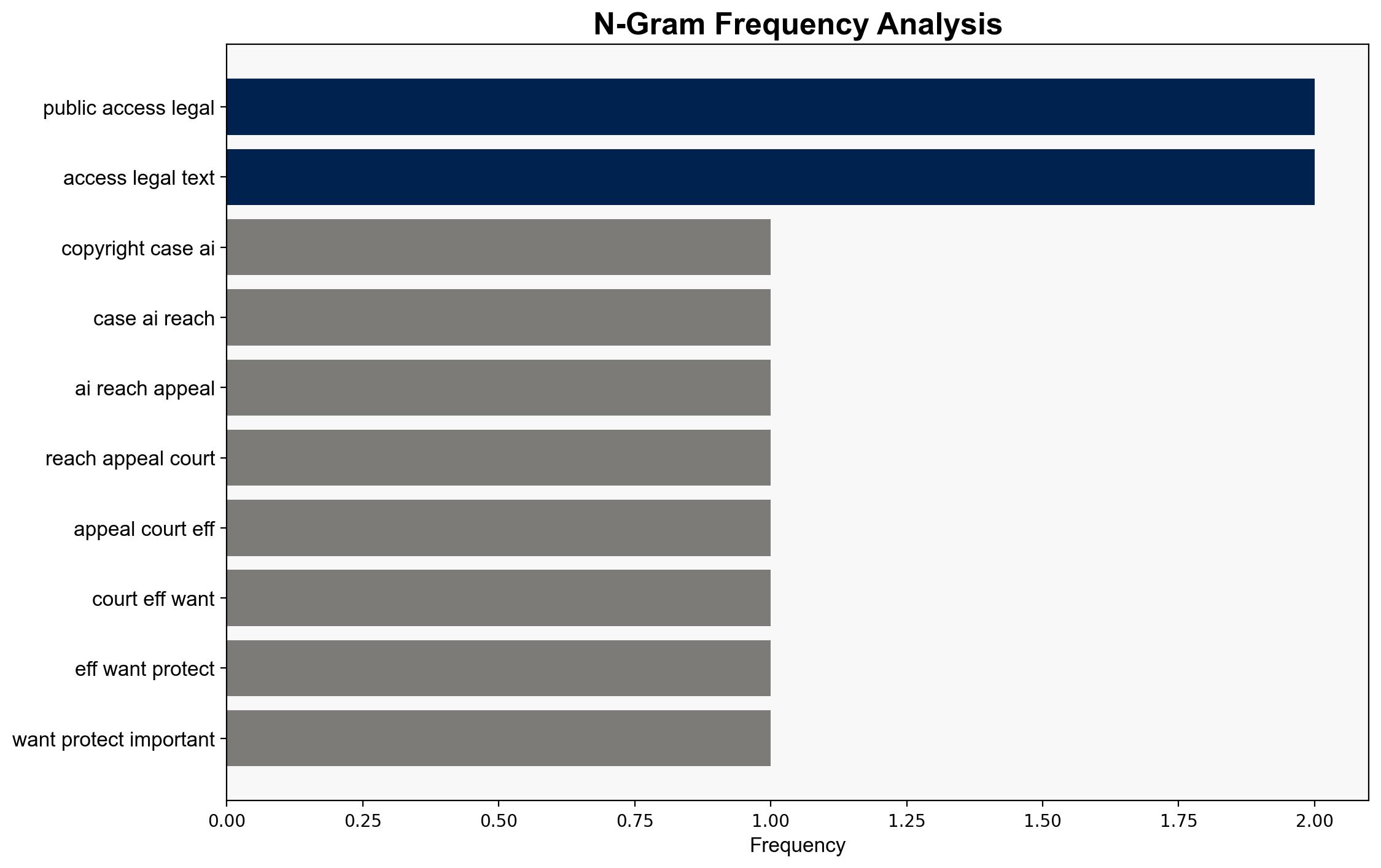Protecting Access to the Lawand Beneficial Uses of AI – EFF
Published on: 2025-09-30
Intelligence Report: Protecting Access to the Law and Beneficial Uses of AI – EFF
1. BLUF (Bottom Line Up Front)
The strategic judgment indicates a moderate confidence level that the court’s decision could set a precedent limiting the use of AI in legal research, potentially stifling innovation and access to legal information. The hypothesis that the court’s ruling will negatively impact AI development is better supported. It is recommended to advocate for clearer legal frameworks that balance copyright protection with technological advancement.
2. Competing Hypotheses
1. **Hypothesis A**: The court’s decision will limit AI development in legal research by reinforcing strict copyright protections over legal texts, thus hindering innovation and access to legal information.
2. **Hypothesis B**: The court’s decision will not significantly impact AI development, as it will encourage the creation of more robust AI systems that can operate within the legal constraints, fostering innovation in a legally compliant manner.
Using the Analysis of Competing Hypotheses (ACH) 2.0, Hypothesis A is more supported due to the current legal environment’s tendency to favor copyright holders, as evidenced by the court’s ruling against Ross Intelligence.
3. Key Assumptions and Red Flags
– **Assumptions**:
– The assumption that legal texts should be freely accessible for AI training is central to Hypothesis A.
– Hypothesis B assumes that legal constraints will drive innovation rather than stifle it.
– **Red Flags**:
– The potential bias in the judicial system towards established entities like Thomson Reuters.
– Lack of clarity in what constitutes fair use in AI training remains a significant blind spot.
4. Implications and Strategic Risks
– **Economic**: Restricting AI development in legal research could increase costs for legal services, impacting access to justice.
– **Cyber**: Potential increase in proprietary data protection measures could lead to heightened cybersecurity risks.
– **Geopolitical**: The decision may influence international perspectives on AI and copyright law, affecting global AI policy harmonization.
– **Psychological**: The ruling may deter startups from entering the legal tech space, fearing legal repercussions.
5. Recommendations and Outlook
- Advocate for legislative clarity on the use of copyrighted material for AI training to ensure a balanced approach that protects intellectual property while fostering innovation.
- Scenario Projections:
- **Best Case**: Legal frameworks evolve to support AI innovation, leading to enhanced legal research tools.
- **Worst Case**: Strict copyright enforcement stifles AI development, limiting access to legal information.
- **Most Likely**: Incremental legal adjustments occur, with ongoing debates about the balance between copyright and AI innovation.
6. Key Individuals and Entities
– Ross Intelligence
– Thomson Reuters
– Electronic Frontier Foundation (EFF)
– American Library Association
7. Thematic Tags
intellectual property, artificial intelligence, legal technology, innovation policy





